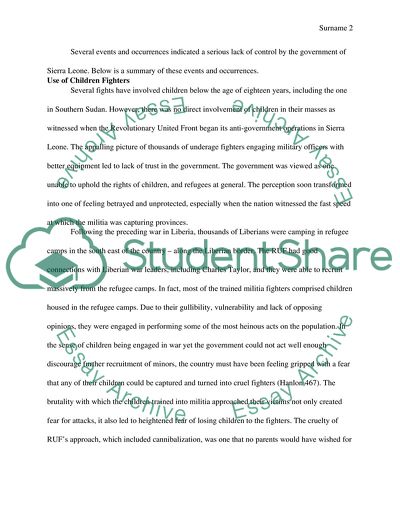Cite this document
(“The Civil War in Sierra Leone Research Paper Example | Topics and Well Written Essays - 1500 words”, n.d.)
The Civil War in Sierra Leone Research Paper Example | Topics and Well Written Essays - 1500 words. Retrieved from https://studentshare.org/social-science/1848647-lack-of-authority-in-government-in-sierra-leone-africa-during-its-civil-war-of-1991
The Civil War in Sierra Leone Research Paper Example | Topics and Well Written Essays - 1500 words. Retrieved from https://studentshare.org/social-science/1848647-lack-of-authority-in-government-in-sierra-leone-africa-during-its-civil-war-of-1991
(The Civil War in Sierra Leone Research Paper Example | Topics and Well Written Essays - 1500 Words)
The Civil War in Sierra Leone Research Paper Example | Topics and Well Written Essays - 1500 Words. https://studentshare.org/social-science/1848647-lack-of-authority-in-government-in-sierra-leone-africa-during-its-civil-war-of-1991.
The Civil War in Sierra Leone Research Paper Example | Topics and Well Written Essays - 1500 Words. https://studentshare.org/social-science/1848647-lack-of-authority-in-government-in-sierra-leone-africa-during-its-civil-war-of-1991.
“The Civil War in Sierra Leone Research Paper Example | Topics and Well Written Essays - 1500 Words”, n.d. https://studentshare.org/social-science/1848647-lack-of-authority-in-government-in-sierra-leone-africa-during-its-civil-war-of-1991.


